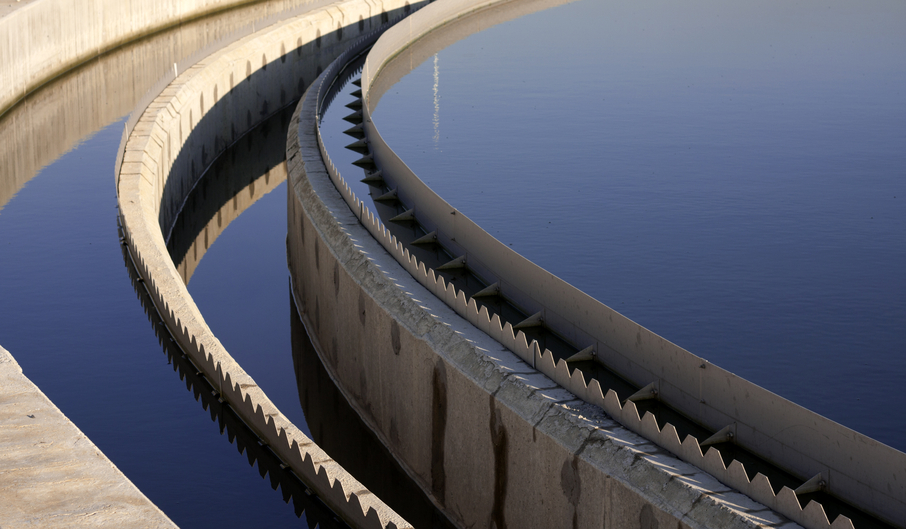Texas Wastewater and Ethics 15 PDH Discount Package 2
Courses in this Package
Management of Onsite and Clustered Wastewater Treatment Systems (C07-013)
Centralized Wastewater Treatment for Facilities Managing Oil and Gas Extraction Wastes: Wastewater Management Practices (C04-058)
Pressure and Gravity Sewers (C02-068)
Ethics in Professional Practice (LE2-007)

This online engineering PDH course provides an overview of key considerations for developing or enhancing management programs for decentralized wastewater treatment systems.
One in every four households in the United States relies on an individual onsite or small cluster system to treat wastewater. In far too many cases, these systems are installed and largely forgotten – until problems arise. On the other hand, EPA concluded in its 1997 Report to Congress that “adequately managed decentralized wastewater systems are a cost-effective and long-term option for meeting public health and water quality goals, particularly in less densely populated areas.”
The key to achieving effective performance of decentralized sewage treatment systems from the simplest “box and rocks” septic tank and drainfield system to the most complex treatment and dispersal units; is an effective management strategy. This strategy must consider several critical elements such as planning, site conditions, risk factors, system design, and operation and maintenance, all of which comprise a management program.
This 7 PDH online course is applicable to civil, environmental and chemical engineers, sanitarians, and others seeking an understanding of Management of Onsite and Clustered Wastewater Treatment Systems.
This PE continuing education course is intended to provide you with the following specific knowledge and skills:
- Introduction to the management of onsite and clustered wastewater treatment systems
- Relevant of the management guidelines to other water programs
- Description of management models
- How to apply the management models
Upon successful completion of the quiz, print your Certificate of Completion instantly. (Note: if you are paying by check or money order, you will be able to print it after we receive your payment.) For your convenience, we will also email it to you. Please note that you can log in to your account at any time to access and print your Certificate of Completion.

This online engineering PDH course provides an overview of wastewater treatment technologies that are applicable to the treatment of oil and gas extraction wastes used at centralized wastewater treatment (CWT) facilities managing these wastes.
The exploration, development and production of oil and gas reserves vary markedly from region to region. There are a number of solid and liquid waste materials generated during oil and gas exploration, extraction and production, and these waste materials may be managed by CWT facilities. The nature and characteristics and quantity of the wastes generated depend upon a number of factors, such as the type of drilling, the characteristics of the formation, the depth of the well and the type and quantity of chemical additives used during drilling, production and well maintenance activities.
CWT facilities that manage oil and gas extraction wastewaters use a variety of treatment technologies, depending on characteristics of the wastewater received and the treatment objectives.
This 4 PDH online course is intended for chemical, petroleum, environmental and industrial engineers as well as other interested in learning about the wastewater treatment technologies that are used at CWT to treat oil and gas extraction wastewaters.
This PE continuing education course is intended to provide you with the following specific knowledge and skills:
- Familiarizing with the following waste treatment technologies: chemical precipitation, filtration/flotation/ sedimentation and crystallization
- Understanding the following technologies: evaporation/condensation, reverse osmosis, and biological treatment
- Learning about the cost considerations of the listed technologies
- Understanding the capabilities and limitations of the listed technologies
Upon successful completion of the quiz, print your Certificate of Completion instantly. (Note: if you are paying by check or money order, you will be able to print it after we receive your payment.) For your convenience, we will also email it to you. Please note that you can log in to your account at any time to access and print your Certificate of Completion.

This online engineering courses is divided in to two parts: The first part discusses sewer systems that use pressure to deliver sewage to a treatment system. The second part discusses small diameter gravity sewers (SDGS) which convey effluent by gravity from a tank to a treatment location. Each part presents an overall description of the relevant topic along with the advantages and disadvantages of each system, design criteria, performance data, operation and maintenance and insights about cost related data.
Alternative wastewater collection systems can be cost effective for homes in areas where traditional collection systems are too expensive to install and operate. Pressure and gravity sewers are used in sparsely populated or suburban areas in which conventional collection systems would be expensive. These systems generally use smaller diameter pipes with a slight slope or follow the surface contour of the land; thereby, reducing excavation and construction costs. These systems convey effluent by gravity from an interceptor tank (or septic tank) to a centralized treatment location or pump station for transfer to another collection system or treatment facility.
This 2 PDH online course is applicable to civil, mechanical and environmental engineers, as well as design and construction personnel involved with the planning, design and installation of low pressure and small diameter gravity sewer systems.
This PE continuing education course is intended to provide you with the following specific knowledge and skills:
- Learning about the common types of alternative wastewater collection systems
- Understanding the advantages and disadvantages of each type of system
- Understanding the applicability of each system
- Familiarizing with the design criteria, performance data and operation and maintenance processes of each system
- Ability to compare conventional wastewater collection systems to alternative wastewater systems
Upon successful completion of the quiz, print your Certificate of Completion instantly. (Note: if you are paying by check or money order, you will be able to print it after we receive your payment.) For your convenience, we will also email it to you. Please note that you can log in to your account at any time to access and print your Certificate of Completion.

In this online engineering PDH course, background on the philosophical models that guide ethical behavior is discussed and then applied to specific situations in engineering codes of ethics. This course is based on the American Society of Mechanical Engineers Professional Practice Curriculum, Volume 8, Section: Engineering Ethics.
Many engineering organizations have drafted codes of ethics to which their members are required to commit. Generally, these codes are quite similar and are based on a few fundamental principles which provide guidance to professional engineers in common situations. Nevertheless, there are many difficult or ambiguous situations in which the best ethical solution is difficult to determine.
This 2 PDH online course is intended primarily for engineers seeking to learn ethical principles and how to apply them to their professional practice.
This PE continuing education course is intended to provide you with the following specific knowledge and skills:
-
Determining ethical behavior using several philosophical models
-
Evaluating a practical situation in terms of a professional code of ethics
-
Identifying situations that represent conflicts of interest and formulate a proper response
-
Applying the standards of professional ethics in technical communication
-
Recognizing environmental impacts of engineering work
-
Considering principles of sustainable development in the performance of professional duties
In this professional engineering CEU course, you need to review "Ethics in Professional Practice" published by the American Society of Mechanical Engineers (ASME). (This course document is reproduced by permission of the ASME (www.asme.org). You may also download from or view this course document on the ASME's website by clicking on Ethics in Professional Practice).
Once you complete your course review, you need to take a multiple-choice quiz consisting of fifteen (15) questions to earn 2 PDH credit. The quiz will be based on this ASME publication.
Upon successful completion of the quiz, print your Certificate of Completion instantly. (Note: if you are paying by check or money order, you will be able to print it after we receive your payment.) For your convenience, we will also email it to you. Please note that you can log in to your account at any time to access and print your Certificate of Completion.